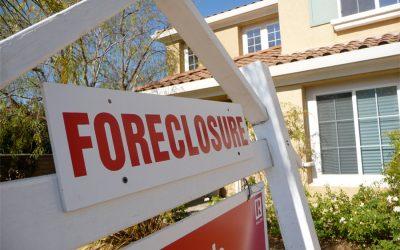
Not all housing markets are created equal. Nor do they all face the same risk from the coronavirus pandemic and the damage it leaves in its wake.
In early April, ATTOM Data Solutions released an analysis of which US cities and counties are most vulnerable to a drop in real estate prices due to the COVID-19 pandemic. They ranked 483 of the most populous counties based on risk, with a rank of “1” being the highest risk.
It turns out that nearly half – 24 – of the 50 highest risk counties fall in just two states, New Jersey and Florida. The Northeast and Mid-Atlantic in general faces far higher risk than most of the country, as does much of California.
The Data, Mapped
Of New Jersey’s 21 included counties, 14 lie in the top 50 highest-risk. Ten of Florida’s counties lie in the top 50.
New York also prominently features in the top 50 highest-risk counties, as are Delaware, Maryland, North Carolina, South Carolina, Louisiana and Virginia.
On the other side of the spectrum, Texas boasts ten of the 50 lowest-risk counties. Other states with relatively low risk include Wisconsin and Colorado.
Would your readers appreciate this interactive map of COVID-19 impact on housing markets? Click here for the embed code.
Share this Map On Your Site
If the map looks like it has a lot of gray counties not accounted for, keep in mind that ATTOM only analyzed the most populated counties in the US. They set a baseline of at least 100,000 residents, and at least 100 homes listed for sale in the first quarter of 2020.
The majority of counties in the US are only sparsely populated, and therefore don’t register in the data above.
Risk Factors Used to Rank Counties
The data analytics firm used three factors to compare risk across counties.
First, they reviewed foreclosure rates before the coronavirus outbreak started. Those that already had a relatively high number of foreclosures face even greater risk of a foreclosure-induced housing slump, despite the temporary foreclosure moratorium on most federal-backed mortgage loans. ATTOM reviewed data on the percentage of homes in some stage of the foreclosure process in the fourth quarter of 2019.
Second, they analyzed the number of homes underwater on their mortgage in each county. “Underwater” means that a home has negative equity – the owner owes more money on the mortgage than the home is worth. Homeowners and landlords underwater on their properties prove far more likely to strategically default: to let their home go into foreclosure rather than fight tooth and nail to catch the loan up and keep their property. Underwater homes and strategic defaults drove much of the housing collapse back in 2008-2010.
Finally, ATTOM reviewed local housing affordability. They did this by comparing median local wages to median local home values, as homes in some parts of the country cost many times more than local incomes than homes elsewhere. In counties with low affordability, homeowners and renters already found themselves financially strapped to pay for housing even before the pandemic.
Additional Risk Factors Not Included in the Analysis
While the above data certainly help anticipate vulnerability to defaults, they aren’t the only factors.
Not all industries have been hit evenly by the coronavirus pandemic. Some, like travel and hospitality, have effectively ground to a halt, with mass business closures and layoffs. Others, like healthcare and IT, remain relatively robust.
Because some cities rely heavily on industries like tourism, while others’ economies revolve around relatively safe industries like agriculture, some cities are inherently more economically vulnerable than others.
(article continues below)
Likewise, cities with high population density like New York and Chicago face much greater likelihood of transmission. More of their residents are likely to contract the virus than less dense areas.
Some cities moved more decisively to close schools and businesses before a localized outbreak could take root. They may yet avoid the worst of the pandemic, and gradually reopen some businesses earlier.
Then there’s evictions. In tenant-friendly jurisdictions that suspended evictions during the pandemic, more landlords will go for months without rents, causing them to default on their mortgages. That in turn will create a domino effect, triggering more foreclosures. Landlords who can still remove non-paying tenants can replace them with paying tenants, and therefore avoid foreclosure.
Keep in mind that most landlords’ mortgages aren’t covered by the nationwide foreclosure moratorium. That applies only to government-backed mortgages such as conventional and FHA loans, not portfolio loans and most other rental property loans.
Final Thoughts
There will absolutely be plenty of opportunities for real estate investors to find motivated sellers and score great deals on investment properties in the coming months.
Unfortunately, it will also be much harder to sell homes, as demand pulls back due to fear, social distancing, and high unemployment rates.
So, should real estate investors buy properties during COVID-19? It depends on your risk tolerance.
Expect to see greater opportunities for deals, but also higher risk and challenges in securing financing. For the latter, try Lending Home and Fund & Grow, as both continue operating normally. As for finding deals, use Propstream to find distressed sales before they become public knowledge.
Whatever you do, stay safe, stay liquid, and don’t overextend yourself on the eve of a recession!
Do you plan to buy investment properties during the coronavirus pandemic? If so, how do you plan to protect yourself?
More Unconventional Reads:
I want to know more about…
About the Author

G. Brian Davis is a landlord, real estate investor, and co-founder of SparkRental. His mission: to help 5,000 people reach financial independence by replacing their 9-5 jobs with rental income. If you want to be one of them, join Brian, Deni, and guest Scott Hoefler for a free masterclass on how Scott ditched his day job in under five years.



























Fascinating data. Reads like a map of overpriced real estate markets in the US. I believe this is what economists refer to as a “correction”…
It certainly does 🙂
As per the provided pieces of information, the housing market of the grey marked counties will rise as they have fewer risks though they are not crowded. I am not planning to buy during the pandemic. Maybe later.
I hear you Sally! You’re certainly not alone in that sentiment.